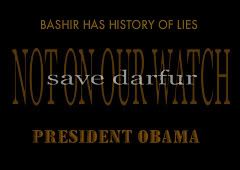USA AND AUSTRALIA HAVE THIS IN COMMON
 Australia's PM Kevin Rudd has delivered a formal apology to Aboriginal people for injustices inflicted by successive governments, in an address broadcast across the country.
Australia's PM Kevin Rudd has delivered a formal apology to Aboriginal people for injustices inflicted by successive governments, in an address broadcast across the country.
"Australia apologizes to Aborigines" I find this story a story that bears our attention in the United States. For many indigenous Australians this is a symbolic gesture of immense scale. The hope is it will usher in a new era of recognition and reconciliation. For many indigenous Australians this is a symbolic gesture of immense scale. The hope is it will usher in a new era of recognition and reconciliation. In Canberra, the Australian government "officially apologized Wednesday to its indigenous people for past treatment that 'inflicted profound grief, suffering and loss,' in a historic parliamentary vote that supporters said would open a new chapter in race relations in the country. Lawmakers unanimously adopted Prime Minister Kevin Outback communities. 'We apologize for the laws and policies of successive The apology was directed at tens of thousands of 'For the pain, suffering and hurt of these Stolen 'And for the indignity and degradation thus inflicted on In a speech urging lawmakers to support the motion Rudd received a standing ovation from lawmakers and ...The apology places Australia among a handful of nations Aborigines lived mostly as hunter-gatherers for tens of I wrote about the United States of America's need to acknowledge our injustices against our indigenous people before. See below for yesterday's update on this Rhode Island case against seven Narragansett Indians. * ........................................................................ ........................................................................ So you killed me..... By gomauro Australia says sorry to Aborigines | ||
| |||||||||||||||||
Labels: Aborigines, Apology, Atonement, Australia, Healing, ilovemylife, Indigenous People, Native American Indians, Sandra Hammel, United States, Wrong Made Right Starts With An Apology







1 Comments:
Troy's great grandfather was a Sioux warrior who fought in the battle of the Greasy Grass (aka Little Bighorn). His great grandmother recalled chasing the white soldiers out of her encampment. His family is a living example of the trauma caused by the willful destruction of Native American culture: poverty, disease, violence, drug abuse.
This sad, sad result for a people that lived in harmony with the environment for 12,000 years.
Post a Comment
Subscribe to Post Comments [Atom]
<< Home